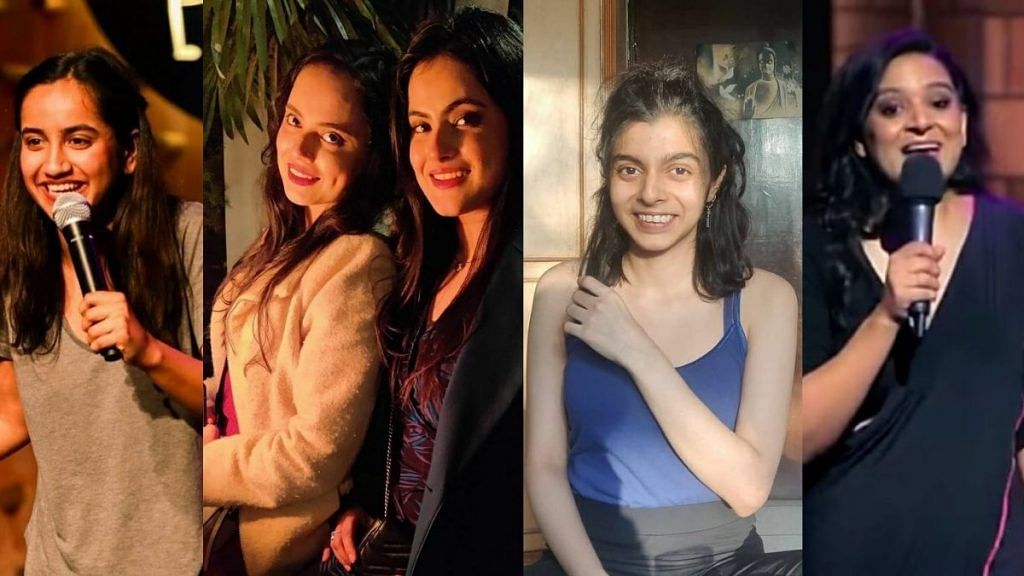India’s booming stand-up comedy space took quite the hit due to Covid-19, with offline gigs no longer a viable option. But what the pandemic failed to disrupt was the dominance of Hindu, upper-caste men, understood to be the ‘whole’ of the comedy scene. The names in the ‘top five’ list of comedians in India stand witness to this. Women comedians end up in a different category altogether — that of ‘women comedians’, and not simply comedians. But the rise of Muslim women comedians in India and across the world is a silver lining.
Their rise is not coming out of thin air, nor does the themes and punch lines in their performances. India’s current sociopolitical climate has a major contribution in ensuring that their jokes land well, even when they are inside jokes. Because it is all about having a voice. And their struggle to pick up the mic, or hold their phone cameras to reach out to the millions is just the beginning of their quest to ask important questions through their art, despite knowing that getting a few LOLs is just the first step that humanises their community.
Indian Muslim women comedians are making and marking their space for all to see, and doing it in their own, unique styles — be it roast, improv, sketches or Instagram reels.
Also read: WhatsApp suffering ‘Facebook moment’. After capture by uncle-aunties, time for trendier apps
Lockdown special
Lockdown meant the online space was breaking out like never before, and Instagram took over after TikTok was banned by the Narendra Modi government. From reels to IGTV, Instagram allowed many creative individuals like Shazma and Soha or ‘the_bajis’ from Delhi to flourish.
The everyday, relatable videos of the duo make for content that one can keep going back to, share with family or shake one’s head while going ‘this is so my family’ over them. And the audience agrees. Just read the comments. People appreciate the middle-class ‘budgeting’ over transport and Starbucks coffee, the language used, that resonance of Old Delhi-Chandni Chowk area and the everyday mishaps of life.
Kareema Barry’s ‘Futtoh phuppo’ is a quintessential aunt, who wants her niece to get married and cook well, and has an opinion on everything under the sun. But she could also be as easily a Hindu or a Sikh aunty, because the humour on display is more about shared experiences as an Indian.
Kareema’s videos also deal with current affairs, from government’s handling of the pandemic to mental health.
While the ‘Muslimness’ might be overt through attire, or references to cultural and religious practices, the universality of the humour is what makes the videos so fresh. They are political in the way ‘personal is political’ for women, and one that a woman gets to decide for herself — the kind of content and comedy she wants to create.
Also read: Before desi cow exam, Indians should study how to not kill dolphins and elephants for fun
The reclaiming of space
Kaneez Surka is one of the better-known names in India when it comes to female comedians, rising to fame with the ‘If Apps Were People’ series on All India Bakchod. The series also featured another female Muslim comedian — Urooj Ashfaq.
Kaneez was the first and only female judge on Comicstaan, the first of its kind stand-up comedy talent hunt show on Amazon Prime. She groomed contestants on improv comedy, which requires an artist to make up a scene immediately in front of a live audience, the theme/situation for which is often based on their suggestions.
While male Indian comedians are basking in the glory of full-length specials, female comedians, except for Aditi Mittal who has Things They Wouldn’t Let Me Say, do not get the space of ‘solo’ shows. Netflix’s Ladies Up, a four-part 15-minute-episode series of stand-up comedy, featured four Indian female comedians, including Kaneez Surka in April 2020. And that itself is a not-so-subtle reminder of how undemocratic the Indian comedy scene is.
Also read: Why ‘AK vs AK’ matters in self-soaked Bollywood
What kind of ‘Muslim’ comedy?
Urooj Ashfaq, who has been performing live for some time, found fame in If Apps Were People and as the host of Comictsaan Season 2. Urooj’s brand of self-deprecating humour often takes on the struggles of being Muslim in an India that thrives on everyday Islamophobia.
Urooj’s video while being hilarious, also explores the trope of reclaiming the ‘victimhood’ handed out to being a Muslim in India. Her take is a reminder that stereotypes exist in every religion and culture, but being part of a majoritarian religion helps in driving them to extents that become more violent in everyday expressions.
It is not simply India where the comedy scene has witnessed the rise/entry of female Muslim comedians. From Iranian-American comedian Negin Farsad to Pakistani-British Shazia Mirza and Maysoon Zayid, who is also the first Muslim female comedian to perform in Palestine and Jordan, the international comedy space too is witnessing the arrival of Muslim comedians, with their individual brands of comedy as well as heritage.
If women are not ‘funny enough’, Muslim women somehow are not seen as funny because of how ‘oppression’ is somehow understood to be part of being a practising Muslim woman. But be it in neighbouring Pakistan, where female comedians are boldly taking to the stage, India, or across the world, this stereotype is being challenged by women showing how diversity of humour enriches comedy, and allows for a richer, funnier, more intelligent engagement.
Views are personal.
